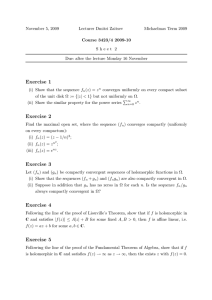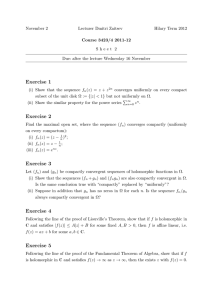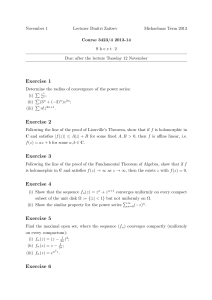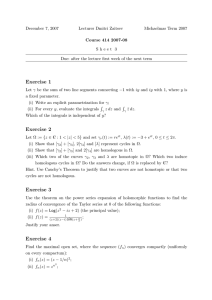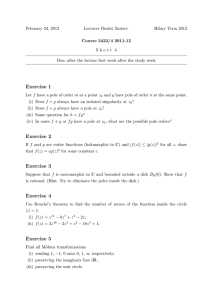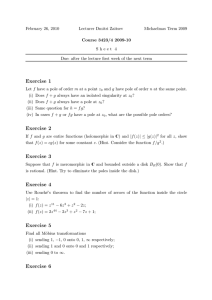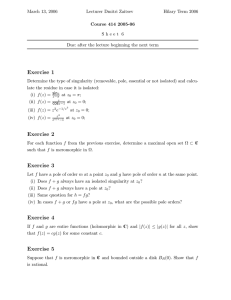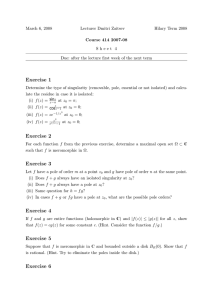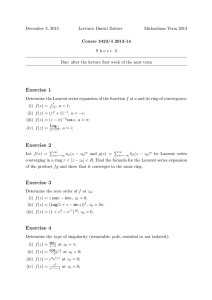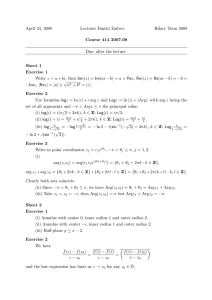November 27 Lecturer Dmitri Zaitsev Michaelmas Term 2015 Course 3423 2015
advertisement
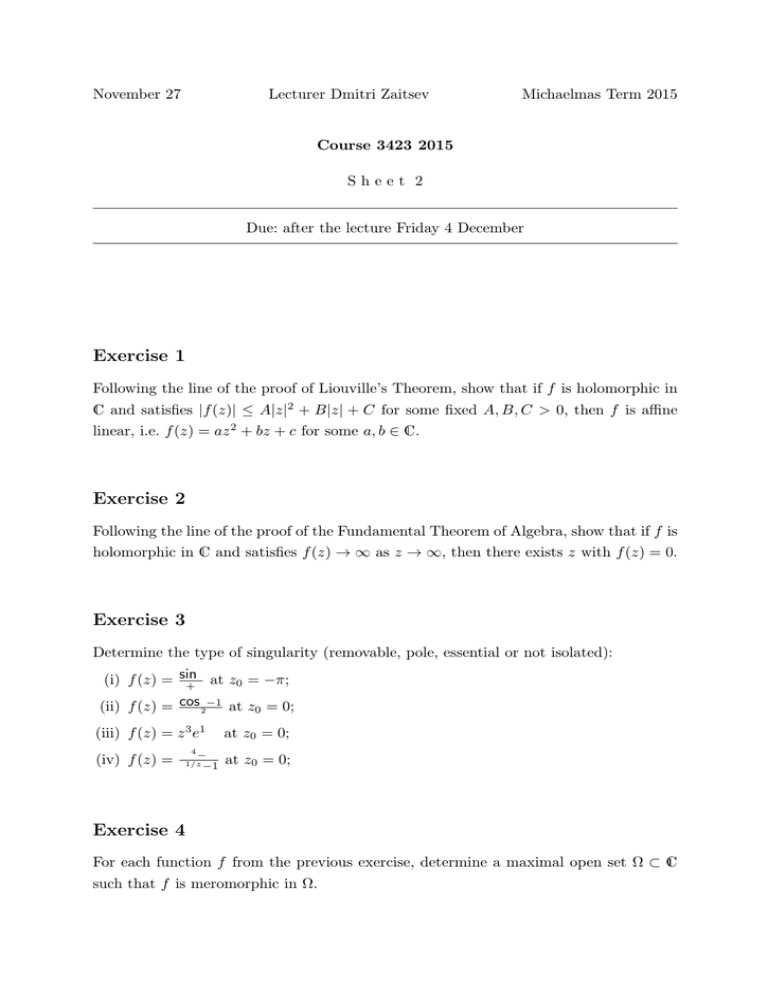
November 27
Lecturer Dmitri Zaitsev
Michaelmas Term 2015
Course 3423 2015
Sheet 2
Due: after the lecture Friday 4 December
Exercise 1
Following the line of the proof of Liouville’s Theorem, show that if f is holomorphic in
C and satisfies |f (z)| ≤ A|z|2 + B|z| + C for some fixed A, B, C > 0, then f is affine
linear, i.e. f (z) = az 2 + bz + c for some a, b ∈ C.
Exercise 2
Following the line of the proof of the Fundamental Theorem of Algebra, show that if f is
holomorphic in C and satisfies f (z) → ∞ as z → ∞, then there exists z with f (z) = 0.
Exercise 3
Determine the type of singularity (removable, pole, essential or not isolated):
z
(i) f (z) = sin
z+π at z0 = −π;
at z0 = 0;
(ii) f (z) = coszz−1
2
(iii) f (z) = z 3 e1/z at z0 = 0;
(iv) f (z) =
z 4 −z
e1/z −1
at z0 = 0;
Exercise 4
For each function f from the previous exercise, determine a maximal open set Ω ⊂ C
such that f is meromorphic in Ω.
Exercise 5
Let f have a pole of order m at a point z0 and g have pole of order n at the same point.
(i) Does f + g always have an isolated singularity at z0 ?
(ii) Does f + g always have a pole at z0 ?
(iii) Same question for h = f g?
(iv) In cases f + g or f g have a pole at z0 , what are the possible pole orders?
Exercise 6
Use Rouché’s theorem to find the number of zeroes of the function inside the circle
|z| = 1:
2
(i) f (z) = z 66 − 19z 7 + z 2 − 2z + ez ;
(ii) f (z) = 2z 48 − 6z 73 + z 2 − 38z 15 + 1 + ez sinz;
Exercise 7
(i) Show that the sequence fn (z) = z 2n + z n+1 converges uniformly on every compact
subset of the unit disk Ω := {|z| < 1} but not uniformly on Ω.
P∞
2
(ii) Show the similar property for the power series n=0 (−z)n .
Exercise 8
Find the maximal open set, where the sequence (fn ) converges compactly (uniformly
on every compactum):
1 2
2n ) ;
1
n;
(i) fn (z) = (z 2 −
(ii) fn (z) = ez −
(iii) fn (z) = e−n z.
Exercise 9
Let (fn ) and (gn ) be compactly convergent sequences of holomorphic functions in Ω.
(i) Show that the sequences (fn + gn ) and (fn gn ) are also compactly convergent in Ω.
Is the same conclusion true with “compactly” replaced by “uniformly”?
(ii) Suppose in addition that gn has no zeros in Ω for each n. Is the sequence fn /gn
always compactly convergent in Ω?
